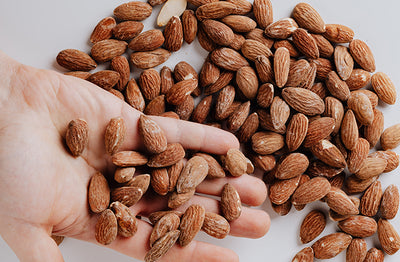There are a few lucky individuals who boast of a fast metabolism, and some even claim this is the reason for the slim waistlines. It is true that some people are born with a fast metabolism, but it is possible to speed up your metabolism.
This article will provide you with a basic understanding of the metabolic process, and most importantly, will leave you with ten proven ways to boost your metabolism.
What is Metabolism?
Metabolism involves complex biochemical processes in which the body converts the calories in food and beverages you have consumed into energy. Several factors such as age, sex, and body composition determine basal metabolic rate (BMR) or the number of calories your body will need to perform this function. Additionally, food thermogenesis and physical activity can affect how many calories a person burns each day.
The two main processes that form the metabolic cycle are
catabolism and
anabolism.
Catabolism involves the breakdown of molecules and complex compounds into simpler forms which are then used for the production of energy.
Anabolism, on the other hand, requires energy; it is the building-up process of metabolism which allows the body to grow and heal.
Metabolic rate is the amount of energy that is expended; it can be divided into three main components- basal metabolic rate (BMR), the thermic effect of food (TEF) and the thermic effect of exercise (TEE).
Although metabolic rates vary from person to person, there are several ways to speed up metabolism and promote weight loss.
10 Ways to Improve Metabolic Rate
Here are ten simple ways to increase metabolic rate:
1. Eat Protein
Whenever you consume food, there is a temporary increase in metabolic rate, known as the thermic effect of food (TEF). The thermic effect is heightened after one consumes protein. Protein can increase metabolic rate by 20–30%, compared to carbs and fat which only result in a 3–10% increase. Consuming
protein can also counteract muscle loss and the slowdown of metabolic rate associated with weight loss.
2. Lifting
Lifting weights and strength training will build up lean muscle, in turn, this will increase your resting metabolism as muscle is more active than fat, and you will continue to burn calories post workout.
3. Sleep
Lack of sleep not only affects
general health and well-being, but it also reduces metabolic rate and increases weight gain. Sleep deprivation has been shown to boost the hunger hormone ghrelin and disrupt leptin, the fullness hormone.
4. Drink Coffee or Green Tea
Studies have shown that
caffeine can boost metabolism by 3–11%. Sipping a cup of coffee or green tea is such an easy way to give your metabolism a boost. Coffee or green tea can promote fat burning and speed up metabolic rate.
5. Smaller Meals
While dieting may seem like a quick fix, eating too little is sure to decrease your metabolic rate. Eating fewer than 1,000 calories will result in what is known as starvation mode or metabolic adaptation. Research has shown that this slowdown in metabolic rate continues even after you stop dieting. Interestingly, intermittent fasting seems to have the opposite effect.
6. Stay Hydrated
Drinking water is not only necessary, but it also increases metabolic rate and the number of calories burned. Known as water-induced thermogenesis, drinking cold water can raise resting metabolism as it requires heat to warm up to body temperature.
7. HIIT High- Intensity Interval training
High-intensity interval training or HIIT, a form of interval training, involves quick and intense bursts of activity that significantly speed up your metabolism. You will continue to burn fat post exercise— an effect known as excess post-exercise consumption (EPOC) — as your body works to repair muscles and recover oxygen levels to a resting metabolic level.
8. Keep Moving
The more active you are, the higher your metabolic rate. This also applies to basic activities, such as standing up regularly, walking around, stretching or doing household chores. This boost in metabolic rate is known as non-exercise activity thermogenesis (NEAT). Essential physical activity increases your energy expenditure and burns around 300 calories a day.
9. Intermittent Fasting
Intermittent fasting (IF) is an eating pattern that involves fasting periods which has proven to have multiple health benefits including improving hormone levels, insulin sensitivity, and inflammation. IF facilitates weight loss as you consume fewer calories and simultaneously trigger the release of the fat burning hormone, noradrenaline, which can increase metabolic rate by up to 14%.
10. L-Carnitine
Carnitine is an essential nutrient that plays a significant role in the production of energy. Available as a supplement,
L-carnitine transports fatty acids into cells for energy and may aid in weight loss and exercise recovery.
Like any supplement, you should consult a GP or health care professional before starting any new supplements or diet program.
Read Also:















